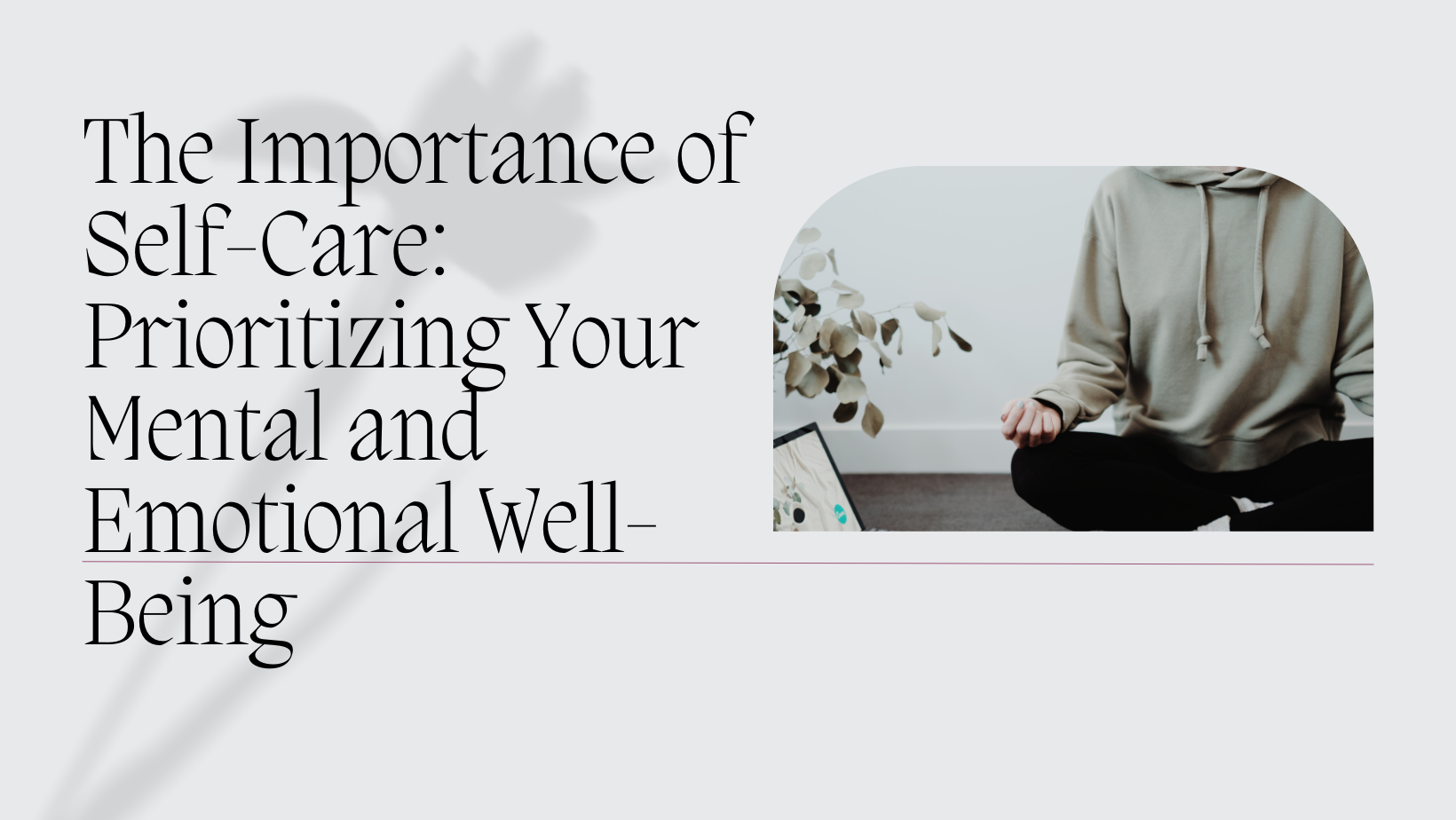In our fast-paced, demanding world, it’s easy to get caught up in the hustle and bustle of daily life, often neglecting one crucial aspect of our existence – our mental and emotional well-being. The importance of self-care cannot be overstated. It is the foundation upon which a healthy and fulfilling life is built. In this blog post, we will delve into the significance of self-care practices and provide valuable tips for maintaining a positive mindset.
Section 1: Understanding Self-Care
Before we explore the importance of self-care, let’s define what it entails. Self-care is a deliberate and conscious practice of taking actions to maintain, improve, or restore your physical, mental, and emotional health. It involves prioritizing your well-being and making choices that promote a balanced and fulfilling life.
1.1 The Mind-Body Connection
Self-care acknowledges the intricate connection between our mental and physical health. When we neglect our mental and emotional well-being, it can manifest as physical symptoms, such as stress-related illnesses, insomnia, and fatigue. Recognizing this connection is the first step in understanding why self-care is vital.
1.2 Types of Self-Care
Self-care encompasses a wide range of activities and practices, including:
- Physical self-care: Exercise, nutrition, sleep, and relaxation techniques.
- Emotional self-care: Practicing mindfulness, self-compassion, and seeking therapy or counseling when needed.
- Mental self-care: Engaging in activities that stimulate your mind, such as reading, learning, or solving puzzles.
- Social self-care: Nurturing positive relationships and setting boundaries to protect your emotional well-being.
- Spiritual self-care: Exploring your beliefs, values, and connecting with a sense of purpose.
Section 2: The Importance of Self-Care
2.1 Enhancing Mental Health
Prioritizing self-care has a direct impact on our mental health. Regular self-care practices, like meditation or journaling, can reduce symptoms of anxiety and depression, improve overall mood, and boost self-esteem. When we take the time to care for our mental health, we become more resilient in the face of life’s challenges.
2.2 Managing Stress
Stress is an unavoidable part of life, but chronic stress can be detrimental to our health. Self-care acts as a buffer against stress by helping us manage it effectively. Techniques like deep breathing exercises and progressive muscle relaxation can calm our nervous system and reduce the harmful effects of stress hormones.
2.3 Boosting Emotional Resilience
Emotional resilience is the ability to bounce back from adversity and maintain a positive outlook. Self-care fosters emotional resilience by teaching us to process and cope with difficult emotions in healthy ways. When we engage in self-reflective practices, we become better equipped to handle life’s ups and downs.
2.4 Preventing Burnout
In today’s fast-paced world, burnout is a common concern. Prioritizing self-care is one of the most effective ways to prevent burnout. Taking regular breaks, setting boundaries, and practicing self-compassion can help us avoid the physical and emotional exhaustion associated with burnout.
Section 3: Self-Care Tips for Maintaining a Positive Mindset
Now that we understand the importance of self-care, let’s explore some practical self-care tips to help you maintain a positive mindset:
3.1 Create a Self-Care Routine
Establish a daily or weekly self-care routine that includes activities you enjoy. Whether it’s reading a book, taking a nature walk, or practicing yoga, consistency is key to reaping the benefits of self-care.
3.2 Prioritize Sleep
Quality sleep is essential for mental and emotional well-being. Aim for 7-9 hours of sleep per night, and create a relaxing bedtime routine to improve sleep quality.
3.3 Practice Mindfulness
Mindfulness involves being fully present in the moment without judgment. Incorporate mindfulness meditation into your daily routine to reduce stress and enhance self-awareness.
3.4 Seek Support
Don’t hesitate to seek support when needed. Whether it’s talking to a friend, family member, or a therapist, reaching out can help you navigate challenging emotions.
3.5 Set Boundaries
Establish clear boundaries in your personal and professional life. Saying no when necessary and protecting your time and energy are essential for maintaining a positive mindset.
3.6 Stay Active and Eat Well
Regular exercise and a balanced diet play a significant role in mental well-being. Engage in physical activities you enjoy and nourish your body with nutritious food.
3.7 Practice Self-Compassion
Be kind and compassionate toward yourself. Treat yourself with the same love and care you would offer a dear friend.
Conclusion
In a world that often prioritizes productivity over well-being, it’s crucial to recognize the importance of self-care. Taking the time to nurture your mental and emotional health is not selfish; it’s a fundamental step toward leading a happier and more fulfilling life. By understanding the significance of self-care and implementing these practical tips, you can prioritize your well-being and maintain a positive mindset even in the face of life’s challenges. Remember, self-care is not a luxury; it’s a necessity for a healthy and thriving life.



